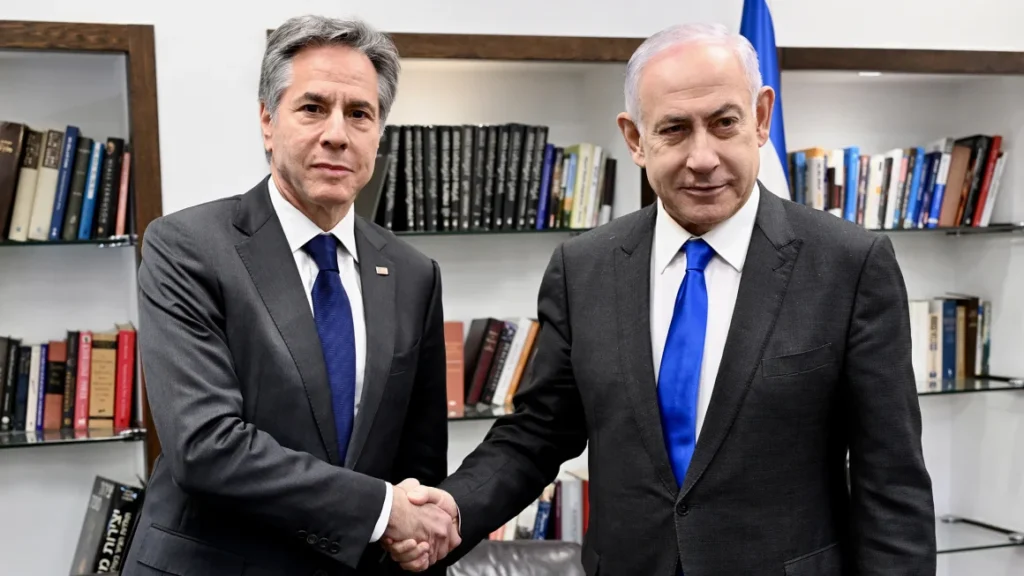Those efforts faced a blow on Friday with the failure of a US-drafted UN Security Council resolution calling for such a ceasefire tied to the release of the hostages held by Hamas.
The stop in Tel Aviv caps Blinken’s sixth round of shuttle diplomacy in the region since the October 7 Hamas attack on Israel. He arrived in the country just before 10 a.m. local time. Following his meeting with Netanyahu, Blinken met with the Israeli war cabinet for approximately two and a half hours.
Blinken’s visit coincided with the resumption of talks in Doha aimed at securing a deal for a ceasefire tied to the release of the hostages held by Hamas as well as a vote at the UN on a US-sponsored Security Council resolution calling for an “immediate ceasefire” in the Gaza conflict.
The resolution was the first time the US had taken to the UN body to call for a ceasefire in the conflict, but they specifically tied the ceasefire to the release of the hostages held by Hamas.
“This Resolution is an opportunity for the Council to speak with one voice to support the diplomacy happening on the ground and pressure Hamas to accept the deal on the table,” Nate Evans, the spokesperson for the US Mission to the UN, told CNN Thursday prior to the vote.
Russia and China vetoed the measure on Friday – a move sharply condemned by US Ambassador to the UN Linda Thomas-Greenfield.
“Once again, Russia put politics over progress,” Thomas-Greenfield said following the vote.
Relations between the Biden administration and the Netanyahu government have frayed in recent weeks, and domestic US frustrations about the war continue to mount. Partisan divides have grown on Capitol Hill, exemplified by Democratic Senate Minority Leader Chuck Schumer’s call last week for an election in Israel and Republican House Speaker Mike Johnson on Thursday stating his intention to invite Netanyahu to address Congress.
Blinken’s meetings were expected to be tense, with Netanyahu vowing to carry out an Israeli military incursion into Rafah, where more than a million Gazans have been forced to flee, despite US and international criticism of such a plan.




